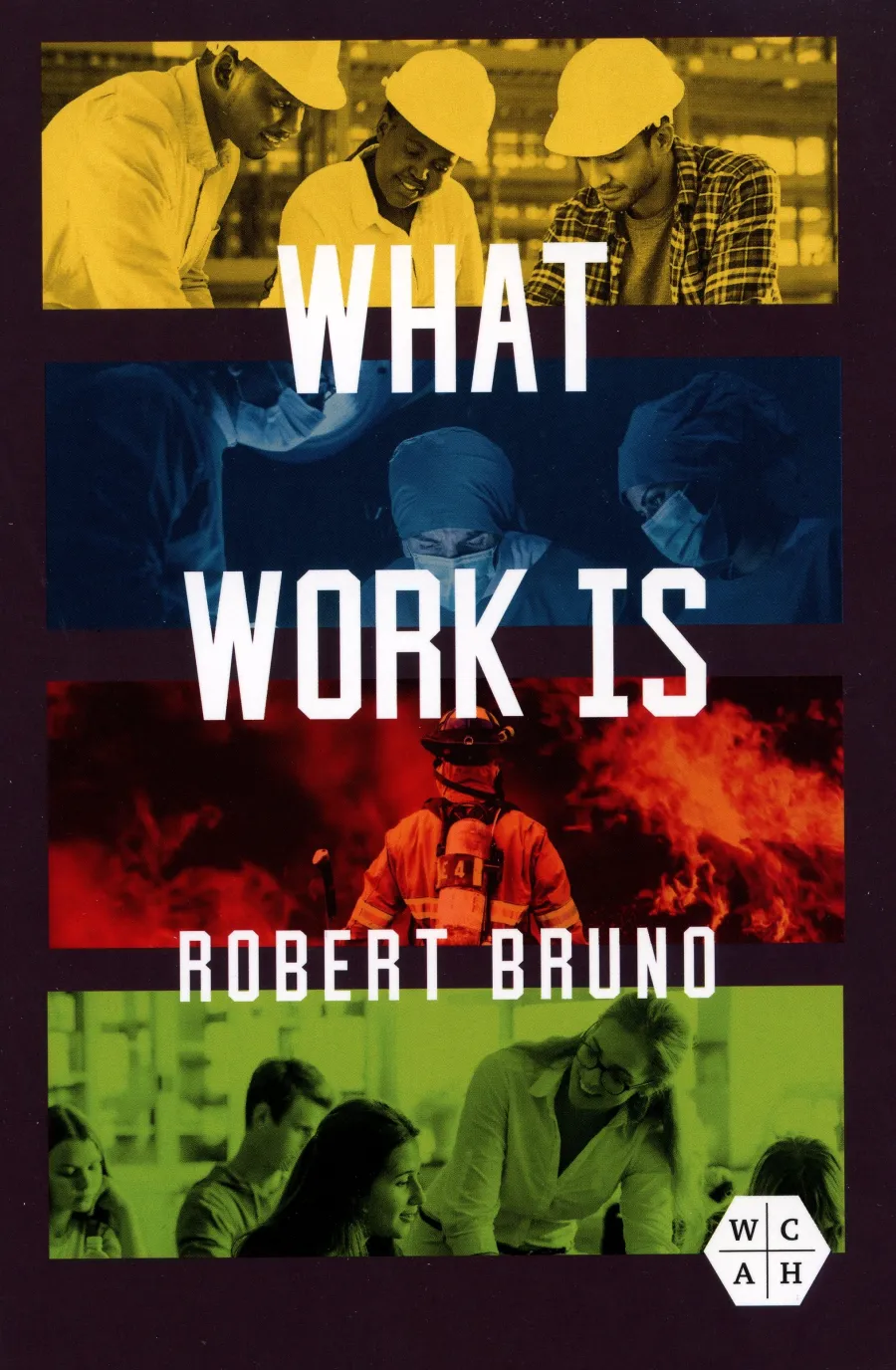What does your job mean to you? Book Review

In six words, if you had to answer the question, “Work is…,” what would you reply?
For nearly thirty years University of Illinois Labor Education Program director Dr. Robert Bruno has asked his worker students that question. Answers varied from “work is a pain” to some deep philosophical ruminations about what work. Bruno reflects on those answers in his latest book, What is Work.
The Labor Education Program provides union-related training for workers by the hundreds annually. Some classes are very practically oriented on steward or contract negotiation training, while others cover labor history, communications and working class mass media images. As steelworkers, electricians, laborers, nurses, fire fighters and public employees gathered for union sponsored classes, his provocative question was raised, leading to involved class discussions.
Bruno peppers the book with his own poetry and childhood memories, watching his father trudge off to a Youngstown, Ohio steel mill and his mother operate her own basement beauty shop and eventually gains a clerical position. Work is a necessity to eat, house and survive, but is there some deeper motivation that gives life meaning, transforming work into a valuable contribution to the larger society? Or as Dr. Martin Luther King Jr. said in Memphis the night before he died, “whenever you are engaged in work that serves humanity and is for the building of humanity, it has dignity and it has worth.”
Bruno divides the book into five chapters, each reflecting the answers he received. They include Time, Space, Impact, Purpose and Subject. Answers from worker students frame each chapter. Work involves an individual’s time exchange for payment; work happens in a unique space, that might legally belong to a corporation or government, but workers transform that space into their own; work has an impact on the person and on the larger world; work has a purpose that perhaps gives the individual meaning; and, finally, work is the contributing activity that frames our lives and builds the human community.
Besides the individual responses that Bruno gathered, he delves deep into philosophy to see what thinkers said about work, including ruminations from Aristotle, St. Augustine, St. Thomas Aquinas, Karl Marx, Frederich Nietzsche and others. The responses note that work is more than survival and family care, it is a human activity that builds social good and hopefully gives the individual satisfaction. Whether it’s collecting garbage, taking a patient’s blood pressure, paving a road or repairing a furnace, a worker’s talent and skills help maintain the human family and mutual connection. Thus work is hopefully more than a paycheck for people.
Besides the author’s reflections, the workers’ reflections are most powerful. Humorous, poignant, meaningful, they span the deeply philosophical to the loving obligation that parents feel for their children and their partners.
We spend our waking hours at work and often think and worry about work during our supposed down time or perhaps even haunting our dreams. Bruno effectively channels his students’ varied responses to craft a volume that helps the reader reflect on work’s meaning to life and perhaps can spark the reader’s reflections on their own contributions.
What Work Is
By Robert Bruno
University of Illinois Press, 2023
Reviewed by Mike Matejka